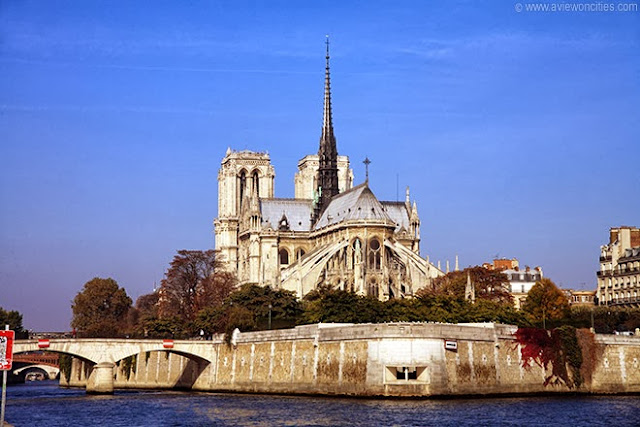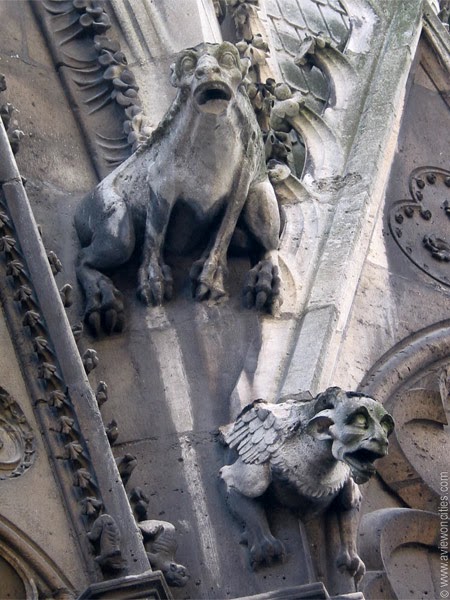Not the largest cathedral in the world, the
Notre-Dame might be the most famous of all cathedrals. The gothic
masterpiece is located on the Île de la Cité, a small island in the heart of the city.
Notre-Dame seen from the Pantheon
A Religious site
Notre Dame de Paris
The site of the Notre dame is the cradle of Paris
and has always been the religious center of the city. The Celts had
their sacred ground here, the Romans built a temple to worship Jupiter. A
Christian basilica was built in the 6th century and the last religious
structure before the Notre-Dame construction started was a Romanesque
church.
Construction
Bishop Maurice de Sully started the construction in
1163. The Cathedral was to be built in the new gothic style and had to
reflect Paris's status as the capital of the Kingdom France. It was the
first cathedral built on a monumental scale and became the prototype
for future cathedrals in France, like the cathedrals of Amiens, Chartres
or Rheims, just to name the most famous.
The Building
Gargoyle
It took until 1345 before the cathedral was
completed, partly because the design was enlarged during construction.
The result is an overwhelming building, 128m long (420 ft) with two 69
meter tall towers (226 ft). The spire, which reaches
90m (295 ft), was added in the 19th century by Viollet-le-Duc. The
Notre-Dame Cathedral has several large rose windows, the northern 13th
century window is the most impressive. The massive window has a diameter
of 13.1 meter
Gallery of Kings
Restoration
During the Revolution, many of the cathedral's
sculptures, gargoyles and interior was removed or demolished. Even the
gallery of Kings was severely damaged: the revolutionaries though the
statues represented
It wasn't until the 19th century before the Cathedral was fully restored thanks in part to the writer Victor Hugo, who with his book 'Notre-Dame de Paris', made the Parisians realise the cathedral was worth restoring. The 20 year long restoration was led by a local architect, Eugène Emmanuel Viollet-le-Duc. Viollet-le-Duc made drastic, controversial modifications to the building and even added a spire. The cathedral was restored again between 1991 and 2001, this time the historic architecture was carefully preserved.
It wasn't until the 19th century before the Cathedral was fully restored thanks in part to the writer Victor Hugo, who with his book 'Notre-Dame de Paris', made the Parisians realise the cathedral was worth restoring. The 20 year long restoration was led by a local architect, Eugène Emmanuel Viollet-le-Duc. Viollet-le-Duc made drastic, controversial modifications to the building and even added a spire. The cathedral was restored again between 1991 and 2001, this time the historic architecture was carefully preserved.





No comments:
Post a Comment